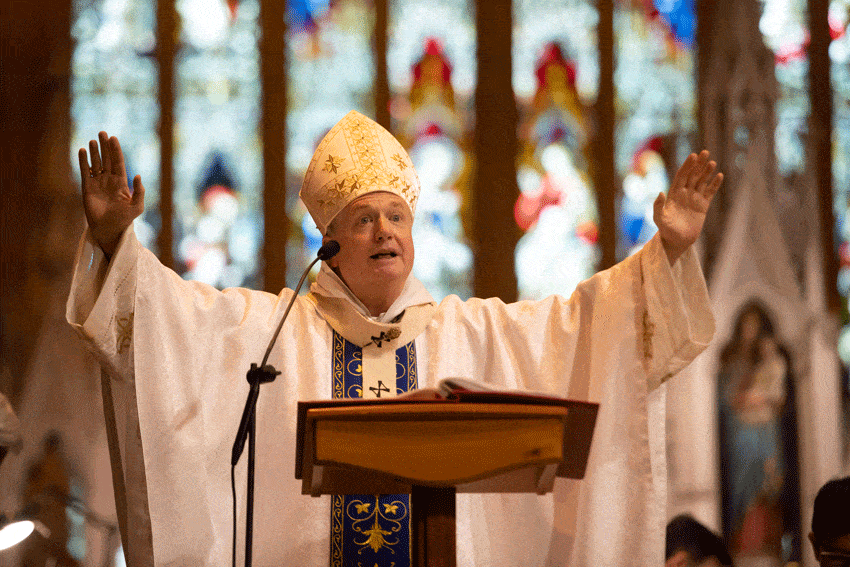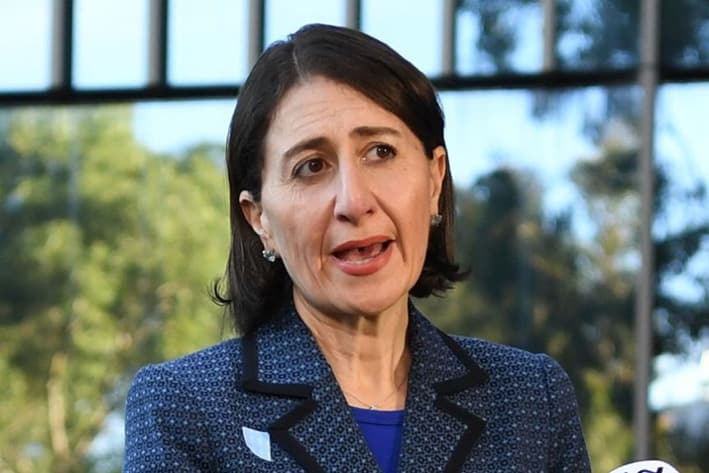
Archbishop urges all to sign petition, write to MPs
Archbishop Anthony Fisher OP has blasted draft assisted suicide laws in NSW parliament as “the last thing we need” while the state battles a COVID outbreak following months of strain due to the pandemic.
In a 20 July statement the archbishop wrote that there is “never a good time to introduce laws that sanction the killing of vulnerable human beings such as the terminally ill, elderly, frail and suffering … But to introduce such a bill in the middle of a pandemic and amidst lockdowns adversely affecting the lives and livelihoods of millions seems especially insensitive,” he added.
“Our sick and our elderly are already experiencing increased isolation…a pro-suicide message is not what they need to hear.” – Archbishop Fisher OP
A month into lockdown the sick and elderly were suffering increased isolation, jobs and businesses being lost, families under pressure and depression rates increasing, the archbishop said.
“The last thing we need to hear from our leaders in this situation is a pro-suicide message or any suggestion that the elderly and dying no longer deserve the resources or protections given to the rest of us.”
Independent MP Alex Greenwich announced the release of his NSW Voluntary Assisted Dying Bill 2021 last Monday. The legislation is expected to be debated in parliament in September. Archbishop Fisher has thrown his support behind a petition launched by Hope, an anti-euthanasia and assisted suicide advocacy group.
He has also encouraged Catholics and other like-minded people to write to their local member of parliament asking them to oppose the introduction of the dangerous laws.
The Director of Hope, Branka van der Linden, said that major concerns with the NSW Bill include its provision for health care workers to suggest euthanasia and assisted suicide to a patient, and the consulting or coordinating doctor need not be a specialist in the person’s illness. Mental illness, including a diagnosis of clinical depression, does not disqualify a person from accessing the scheme with the time between the first and final request being as little as five days.
The petition at noeuthanasia.org.au says that evidence from countries overseas who have legalised euthanasia and assisted suicide demonstrates that they are “unsafe and unregulated” and that the push in NSW comes in the wake of devastating Aged Care Royal Commission findings.
“Premier Berejiklian, it is a national disgrace for states to be legalising the killing of senior citizens when aged care in this country is so bad,” it says. “You promised your party room that there would be no more conscience votes in this term of parliament.

“We call on you to strongly reject outright these dangerous laws that allow doctors to kill their patients – laws that put vulnerable people at risk from wrongful deaths due to pressure to end their lives prematurely.”
Archbishop Fisher said that the NSW Government is “rightly focused” on getting out of lockdown and leading social and economic recovery. “In the face of our present emergency precious parliamentary time and health resources should not be diverted to other causes, and especially not to a bill that would enable a small group of highly autonomous people to make their doctors complicit in their suicide,” he wrote.
“The state-sanctioned killing of the sick, elderly and frail of New South Wales is the last thing we need right now. I call on the Government to keep us focused on the present challenges and once they have been met, let us focus on medicine at its best and not its most lethal.”
Catholic Health Australia’s Director, Strategy and Mission, Rebecca Burdick Davies said that the organisation had been “very clear” in other jurisdictions that its members, which include major aged care providers and hospitals, will never participate in voluntary assisted dying.
“Patients, residents and staff want to live and work in an environment where VAD will never take place…” – Rebecca Burdick Davies, CHA
She said there is concern over the Bill’s lack of protections for aged care facilities and their staff to conscientiously object. “Patients, residents and staff want to live and work in an environment where VAD will never take place, where they feel safe to live and ultimately die with compassion and dignity,” she said.
“We have sought and in some cases gained protections for our members who are exercising their right as organisations to conscientiously object,” she added.
A spokesperson for Catholic Health Australia said that the organisation had not been consulted by Mr Greenwich or his office in the drafting of the bill and was not aware of any of its members being consulted.
Related:
- 10 things about the NSW euthanasia bill
- Archbishop Anthony Fisher OP: Don’t sugarcoat the truth
- Doctors’ dire warning on euthanasia push
- Euthanasia like a new pandemic
